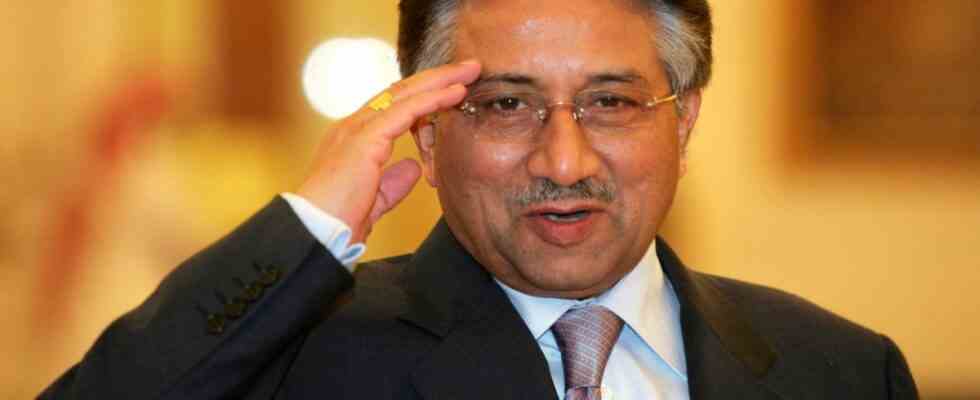Pervez Musharraf, former army chief and President of Pakistan and an ally of George W. Bush in the “War on Terror”, died in a hospital in Dubai on Sunday at the age of 79. Musharraf suffered from amyloidosis, a rare disease in which an abnormal protein builds up in organs, affecting normal functions. His body is scheduled to be flown to Pakistan for burial on Monday.
Prime Minister Shehbaz Sharif, President Arif Alvi and the acting chiefs of the army, navy and air force expressed their condolences: “May Allah bless the deceased soul and give strength to the bereaved.” The grief is less great in hostile India, “Musharraf, traitor to the Lahore Declaration and architect of the Kargil War, dies,” headlined the newspaper Hindustan Times on Sunday.
Born in Delhi in 1943, Pervez Musharraf was four years old when his parents joined the mass exodus of Muslims from India to newly established Pakistan. Musharraf joined the army at 18, where he led an elite unit and later rose to become its chief. Musharraf became head of state after deposing Nawaz Sharif, the older brother of current Prime Minister Shebaz Sharif, in a bloodless coup.
On the brink of nuclear war
Nawaz Sharif had in turn tried to sack Musharraf for planning a 1999 operation to take over Indian-held Kargil territory on the mountain Line of Actual Control, in which Pakistani soldiers disguised themselves as Kashmiri militias. The conventionally fought “Kargil” conflict brought the nuclear powers Pakistan and India to the brink of nuclear war.
After the coup, Musharraf initially ruled as chief executive before becoming president in 2001. Foreign investments increased and Pakistan recorded an annual economic growth of up to 7.5 percent. He enforced rights to protect women and allowed private news channels. “He is called a military dictator, but there has never been a stronger democratic system than the one under him,” Fawad Chaudhry, an old Musharraf collaborator and now the opposition party leader, told the news agency on Sunday Reuters.
After the September 11, 2001 attacks, Musharraf supported the US in its war on terror. These included opening up land routes for NATO troops into Afghanistan, allowing US air bases and sending Pakistani troops into the northern tribal areas to fight Al Qaeda and its allies. Al Qaeda has tried to kill Musharraf three times.
Surprise peace offer to India
At a regional summit in 2002, less than three years after the military operation in Kargil, Musharraf surprised Indian Prime Minister Atal Bihari Vajpayee when he finished his speech and approached him to shake his hand and offer peace talks. But the peace process soon stalled after Musharraf’s term in office.
The later years of his presidency were overshadowed by his increasingly authoritarian rule. In 2007, more than a hundred students demanding the introduction of Sharia law were killed after Musharraf ordered the military to storm the Red Mosque and Islamic school in Islamabad. The incident led to the creation of a new militant group, the Tehreek-e-Taliban Pakistan (TTP), which has since killed tens of thousands of people in suicide bombings and attacks, most recently in Peshawar last week.
In 2007, a suicide bombing that killed opposition leader Benazir Bhutto sparked a wave of violence. Musharraf postponed the elections and declared a state of emergency. In 2008, the country’s first democratic elections were held in eleven years. Musharraf’s party lost, and with Parliament threatened to impeach him, he fled to London.
In 2013 he returned to Pakistan to run for a seat in parliament but was barred from doing so. Nawaz Sharif, whom he deposed in 1999, won. In 2016, Musharraf was allowed to travel to Dubai. In 2019, a court sentenced him to death in absentia for declaring a state of emergency in 2007, but the sentence was later overturned. “I’ve done so much for my country and my people,” he said in a 2014 Al Jazeera interview. Does he regret anything? “Not in the slightest”.

